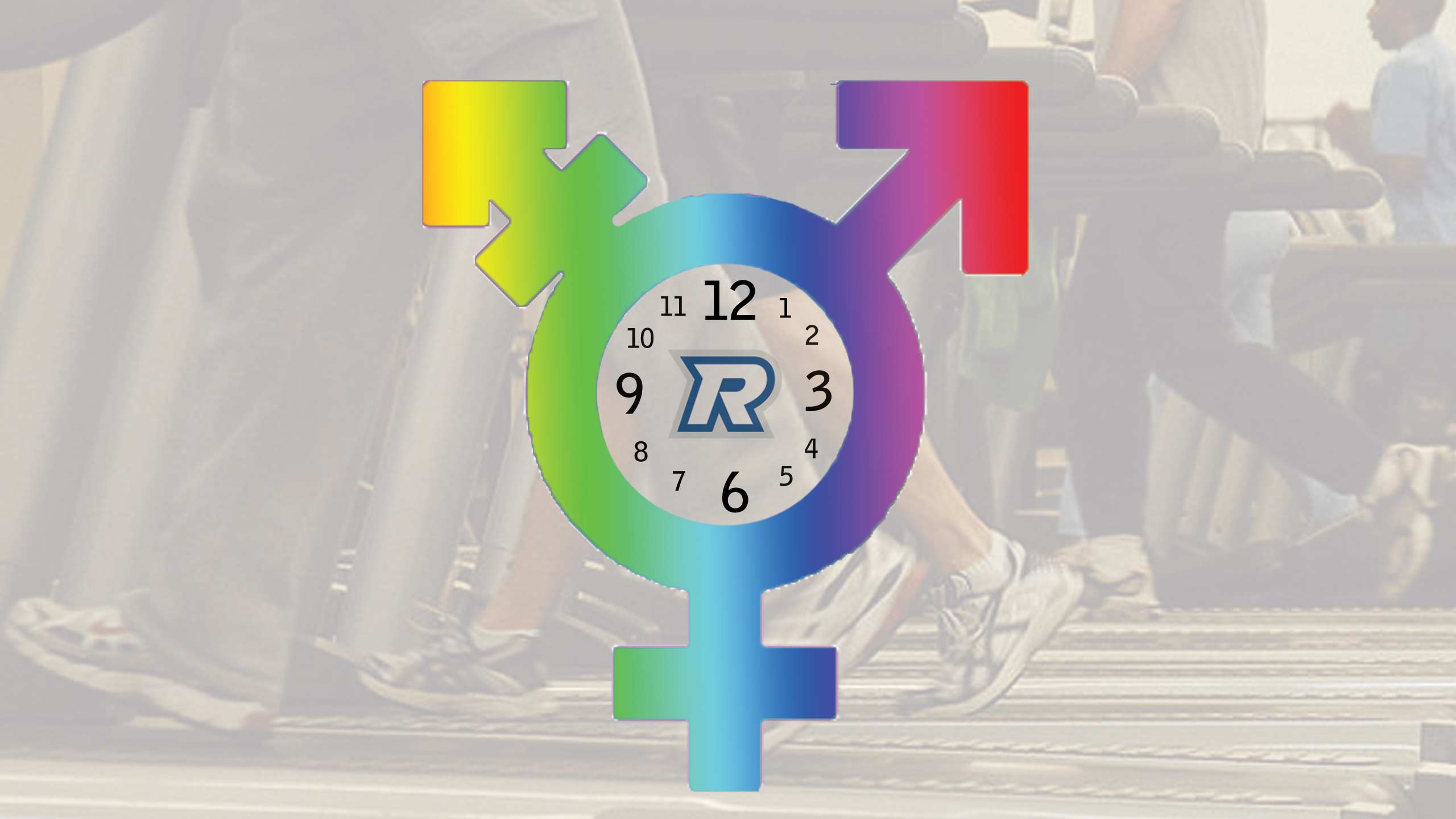By Virginie Tanguay
The Ryerson Students’ Union’s (RSU) equity service centres are ready to start implementing trans-only gym programming at the university’s workout facilities.
“Transphobia exists,” said Camryn Harlick, RSU vice-president equity. “A lot of trans students feel uncomfortable going to the gym because they feel like they might be questioned.”
The equity centres’ end goal is to establish trans-only hours, but before those are enacted Harlick says several steps must be taken.
First, Harlick, along with Ryerson athletics, will be organizing two trans-only events to take place each semester—ideally one at the beginning and one at the end. While dates have not been set, Harlick is looking to create more opportunities for trans students on campus to participate in physical recreation.
These initiatives were introduced in Harlick’s executive report in August, and will provide the chance to record participation statistics to build a case for trans-only hours at one of Ryerson’s gyms.
“That way, when we approach the university, [the need for those hours] will be irrefutable,” they said. Harlick’s plan revolves around providing more chances for trans students on campus, which starts with programs like CrossFit, self- defence and Zumba classes, as well as trans-only swim times.
Harlick hopes these steps would provide space for students who feel like they don’t currently belong in Ryerson’s workout environment—students like Robert Molloy.
A second-year Ryerson student who identifies as trans, Molloy chooses to use the gym between 6 and
9 p.m., when it’s nearly empty. “When I’m working out at the gym, I can’t wear my binder so I’m perceived as more feminine,” he said. A binder is used to flatten the appearance of a chest to the body.
“I’ve noticed men coming up to me and asking if I need help, and I say, ‘Don’t talk to me.’ Or they say I should shave my legs, and I say, ‘Don’t talk to me.’”
Molloy said these interactions during his workout are intrusive, invasive and unwanted.
“I’m not there to look pretty. I’m not there for you. I’m just here to work out.”
His gym time often turns into educating his peers on pronouns and gender identity.
“If we’re allowed to have gender neutral bathrooms on campus, why can’t I have some space to work out?”
This isn’t the first time Ryerson community members are calling for private gym hours.
“I’ve noticed men coming up to me and asking if I need help, and I say, ‘Don’t talk to me.’ Or they say I should shave my legs, and I say, ‘Don’t talk to me.’”
In 2014, women-only hours were implemented at the Recreation and Athletics Centre (RAC). Religious accommodation and harassment were cited as reasons for the necessity of exclusive gym time.
Even though the RAC website describes these hours as open to all trans people, Harlick said having trans men, non-binary or gender- queer people work out during women-only hours could infringe upon the promises made in 2014 to accommodate Muslim women. This gave women who follow Islam the option to workout without wearing religious wear.
“We were told men were still coming into the gym during women-only hours, but we have to think about who those men are,” said Harlick. “Are they trans-masculine? Non-binary? We have to make sure we’re not policing peoples’ bodies.”
Currently, during women’s-hours, people are sometimes removed based on their appearance. To remedy that practice, Harlick suggests training recreation staff on trans issues and putting up a sign on the door to indicate women’s or trans hours moving forward.
But still, as of now, many students don’t have proper space to work out in comfort.
“It has stereotypically been a very gendered, toxic, masculine space. It’s not fair that they wouldn’t be able to access the gym in the way that’s most comfortable for them,” said Harlick. “It would be a place where people wouldn’t feel they need to over-perform [roles] or hide their identities.”
According to the Trans Pulse Project, a research project addressing trans accessibility to health and social services in Ontario, 20 per cent of trans people in the province have been sexually or physically assaulted due to their identity, and 34 per cent have been verbally and/or physically harassed.
Exclusive gym programming could let trans students feel safer than they otherwise would, and that’s something Harlick’s willing to fight for.










Leave a Reply